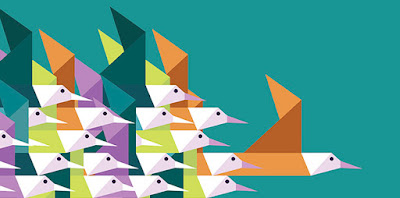My POV on Product Managers: Why they are important & how to spot the good ones
In this post, I want to share my POV on Product Managers and what I have learnt along the way.
Q: Should a Product Manager be one of my first hires?
A: Yes! Absolutely yes! Don't believe me? Read this awesome article by Sallie Krawcheck. A good product manager will obsess over your customers and their problems. A good product manager will be instrumental in sharpening your vision and your strategy. They will help define what success will look like. They will demand you become crystal clear about the problem / pain point you are trying to solve. They will be quick to point out what you will need to build scale. Ultimately, a good product manager will help you get to the product-market fit which you will no doubt iterate from in the future but will still be critical at the onset.
Q: What skills will a good Product Manager bring to the table?
A: A product manager needs to think big picture without losing sight of the details and the steps along the way. A product manager should be equally comfortable talking data analytics as they are talking design. A product manager balances innovation with technical debt. A product manager keeps an eye on the competition but doesn't lead you with a 'me-too' strategy. A product manager takes ownership but ensures all stakeholders are accountable for their pieces. A product manager is excellent at prioritization - especially in today's environment where resources are scarce and you have to be clear on what you build AND what you will kill. Here are some other skills in no particular order of importance: prudent risk taker, customer champion, intellectually curious, loves numbers, knows enough about technology to be dangerous.
Q: Is the Product Manager a mini-CEO?
A: I wish! Read this really funny article titled 'Product Managers - You are not the CEO of anything!' That being said, in the same way that a CEO can't be focused on only one side of the business, a good Product Manager will never take their eye of the end goal: solving real customer problems and running a successful business. They can't focus only on technology or only on strategy or only on CX. Some pieces will be more important than others at different points in time but if you want to be exceptional, you will need to get really good at focusing on several things at the same time - each of which needs a very different skill set.
Q: What do the first 90 days heading up a Product team look like?
A: Lots of learning for sure. Who are your customers? What features do they love? What should they love but don't today? Who is your competition and how are they winning? What are the friction points in the customer journey? What are customers saying about your products?
But beyond learning, there's also ensuring Product Management processes are congruent with where the organization needs to go. How is work prioritized / is it prioritized? Is there a process for creating the product roadmap and is the roadmap balanced between new product development & day-to-day improvements? Are the right business stakeholders at the table? Is there a process to collect customer feedback on an ongoing basis? Does the Product team do Quarterly Business Reviews? Does the Product team do ongoing retrospectives? What is the process to review KPIs and are the right KPIs in place? Is there a vision for where things will be in the next 3-5 years?
And last but not the least, building relationships & culture. A good product manager will start figuring out who they need to start working with. They will quickly figure out individuals' strengths, weaknesses, motivations. They will define measures of success and processes for accountability. They will learn the culture and in the absence of one, they will begin to define one.
Q: What are some good resources on Product Management?
A: To me, Product Management is a blend of design, strategy, technology and marketing.
Start with this: Must Reads on Product Management. Read this: Three Frameworks to Craft Your Product Roadmap. Read How Google Works. Follow folks like Sachin Rekhi, Luke Wroblewski, Sean Johnson. Subscribe to Harvard Business Review, FirstRound, Hackernoon, Quartz. Anything that seems helpful when it comes to learning about any of the four areas above. Cast a wide net. You can always unsubscribe if something doesn't quite work for you.
Oh, and if you are interested in watching Sachin's presentation, here it is:



Comments
Post a Comment